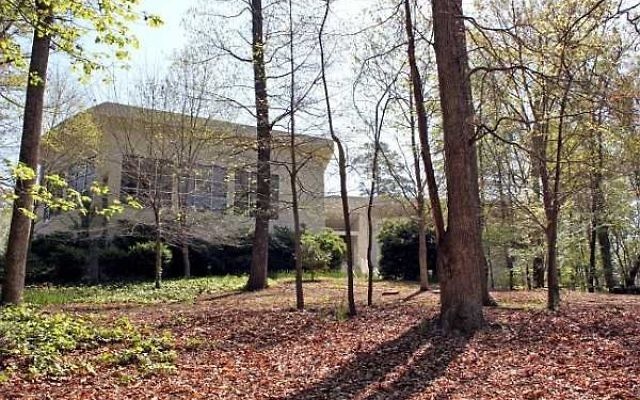A Modern Mikvah for Beth Tefillah
By R.M. Grossblatt
Before Congregation Beth Tefillah constructed a synagogue building on its High Point Road property in Sandy Springs, the members built a mikvah. That was 28 years ago.
Now on the other side of its parking lot, Beth Tefillah is building a new, modern mikvah. With the Silverstone-Wolf families as major contributors, it will be called the Mei Shifra Mikvah, in memory of Yaarit Silverstone’s grandmother Shifra and in remembrance of the midwives in Egypt who delivered and cared for babies in spite of Pharaoh’s decree.
Dassie New, the director of the Chaya Mushka Children’s House and wife of Rabbi Yossi New, said, “The only thing you’re allowed to sell a Sefer Torah for is to build a mikvah.”
She said the mikvah is so important because it keeps our relationships sacred and affects future generations. Yet New said that when she and her husband began the Chabad synagogue in Sandy Springs, few women in the area knew about this mitzvah.
Over the years, New and others taught classes to women and learned one on one with brides. Today many women in Sandy Springs regularly visit the mikvah, sometimes surprising their friends.
People don’t have to be Orthodox to go to the mikvah, she said. “This mitzvah speaks to women from all walks of life.”
It helps them get in touch with themselves and their femininity, she added.
The kickoff event for the Mei Shifra Mikvah, “Women’s Voices, Women’s Souls,” was held at Beth Tefillah in late January. The evening, co-sponsored by Beth Tefillah, The Kehilla and the Chabad Israeli Center Atlanta, offered a memorable sensory experience.
About 100 women sampled desserts, listened to the soothing sounds of a harpist and the uplifting songs from a trio of singers, saw and felt materials to be used in the new mikvah, and heard five women speak about how mikvah has affected their lives.
The women’s personal stories covered lifecycle events including getting married, facing infertility, becoming pregnant, recovering from illness and entering post-menopause.
“Whether using the mikvah once after menopause or going every month, every woman should look at the mikvah as hers,” New said. “That’s why we’re going to great lengths to build the mikvah to satisfy every halachic opinion.”
The mikvah will have two pools that will connect to the immersion pool: one on the side of the pool and one beneath the pool. Rabbi Yirmi Katz, known for his expertise, is overseeing the details that will make the mikvah kosher.
While Tzali Levin is supervising the construction, Debby Derby of D Squared Creative Design Solutions is heading the interior design of the facility. As at the kickoff event, the mikvah’s interior will provide sensory opportunities.
Derby, who is working pro bono, has planned a fireplace, towel warmers, and a copper pedestal sink, reminiscent of the sink in the Beit Hamikdash (Temple). That ancient sink was crafted from the copper mirrors women used to make themselves attractive to their husbands in Egypt.
At Beth Tefillah’s new mikvah, the pedestal sink is the last thing that a woman will see when she exits the mikvah. “We want women to have a meaningful experience when they come here,” Derby said, “like going back to the Garden of Eden.”
Part of that experience for women will be seeing their artwork on the wall of the mikvah. At the end of the kickoff event, the women were encouraged by a leader at each table to draw meaningful pictures with black Sharpies on white paper.
“We came up with the idea of uniting the women through a mural which will hang on a strategic wall in the mikvah,” New said. She presented the idea to Andi Arnovitz, a world-renowned artist, who made aliyah from Atlanta in 1999.
Arnovitz, a former member and strong supporter of Chabad, is excited about using a part of each woman’s art to create the montage. Dassie New’s hope is that a woman entering the mikvah and seeing her work adorning the walls will feel an emotional connection that says, “This mikvah is mine.”





comments